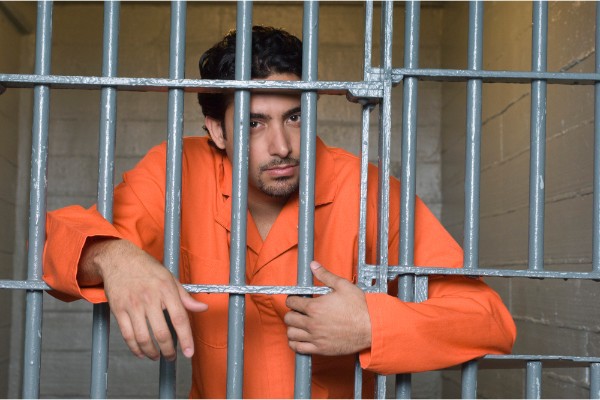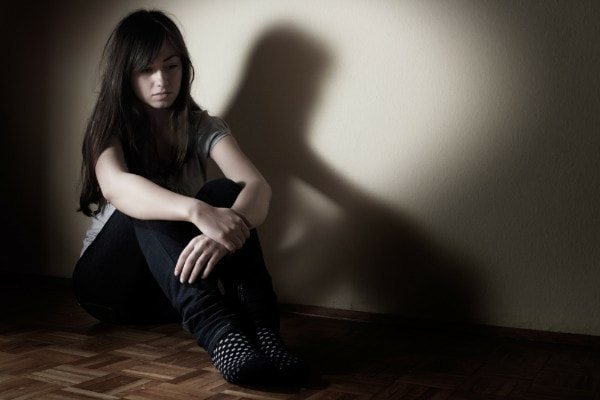|
According to a recent study, more than one in fouryouth with autism admitted to a hospital for psychiatric care had a history of abuse. The children in the study ranged in age from 4 to 20. Half of the children spoke few or no words, and 40% had an intellectual disability. Most of the children had challenging behaviors such as aggression and self-injury.
The high rate of abuse among autistic children was not surprising to researchers given earlier studies that found that autistic children had a higher rate of being abused or neglected than typical children. A study from 2000 found that 9% of neurotypical children were the victims of abuse, while 31% of children with disabilities had been abused and neglected. It is believed that the rate of abuse could be even higher given the communication issues many youths with autism experience. Psychological Trauma This rate of abuse can lead to psychological trauma such as post-traumatic stress disorder (PTSD) in children with autism. PTSD in children with autism can be particularly difficult to detect because the symptoms tend to be masked by the symptoms of autism. The study found that those children who had been abused were more likely to experience intrusive thoughts, loss of interest in activities, bad memories, and irritability. Only 7% of the abused children in the study received an official PTSD diagnosis. This low rate may be the result of mental health professionals being unable to distinguish the symptoms of PTSD from the autism symptoms. Prevention and Identification Children with autism can sometimes have challenging behaviors, such as physical aggression, that may be difficult for caregivers to deal with. This can lead to abusive behaviors on the part of caregivers. Better education and support for the parents and caregivers of children with autism may be helpful in preventing some of the abuse. In addition, it’s important for doctors and other professionals to recognize when a child with autism has been the victim of abuse. The signs may not be the same as they are with neurotypical children. Professionals should familiarize themselves with the behavioral manifestations of abuse experienced by children with autism. This can lead to the removal of children from abusive situations and caregivers. If you or a loved one has a mental disability and has been arrested or convicted of a crime, you need an experienced criminal defense attorney on your side. Elizabeth Kelley specializes in representing individuals with mental disabilities. To schedule a consultation call (509) 991-7058. On February 14, 2019, Matthew Blake Holmes, a 28-year old prisoner in Alabama’s Limestone Correctional Facility was found dead. His death was ruled a suicide. Mr. Holmes’s death marks the fourteenth suicide in Alabama prisons in fourteen months. According to the Southern Poverty Law Center, the rate of prison suicides in Alabama has become an emergency situation.
“Horrendously Inadequate” In a 2017 ruling, a federal judge called the Alabama Department of Corrections’ (ADOC) mental healthcare “horrendously inadequate.” The judge called the failures an example of cruel and unusual punishment. The Southern Poverty Law Center (SPLC) represents prisoners with mental illness in a class action lawsuit against the ADOC. Suicides, especially in segregation cells, has been a central issue in the lawsuit. At least four of the last seven suicides in ADOC facilities have taken place in segregation units. Matthew Holmes’s family believes he may have been the fifth. Federal judge Myron Thompson issued an order in June of 2017, requiring ADOC to work with SPLC to correct major issues. The ADOC has moved awayfrom working with the SPLC and pushed aside a number of SPLC suggestions. This means there will likely be a trial where a court will be forced to order ADOC to implement changes. High Suicide Rate According to the SPLC, the suicide rate in Alabama prisons is four times the national average. The number of suicides has risen as the number of prison guards in ADOC facilities has fallen. The ADOC claims it is working with finite resources and doesn't have the ability to implement better systems. The SPLC has suggested an increased frequency of guards checking on inmates in segregation units, closer supervision of inmates on suicide watch, and a discontinuation of the placement of mentally ill prisoners in segregation units. Prisoners placed in segregation units, or solitary confinement, often develop mental health issues. Those who already have mental health issues and are placed in segregation are especially at risk. They are particularly susceptible to deterioration that can lead to suicide. If you or a loved one has a mental disability and has been arrested or convicted of a crime, you need an experienced criminal defense attorney on your side. Elizabeth Kelley specializes in representing individuals with mental disabilities. To schedule a consultation call (509) 991-7058. According to a recent study, half of parents are unaware that their children are having suicidal thoughts. The study surveyed 5,000 adolescents aged 11-17 and asked them questions including whether they had ever thought about killing themselves and whether they ever thought a lot about death or dying. The parents of these same children were asked questions about their child's thoughts on suicide and death/dying. According to the study, 50% of the parents surveyed had no idea that their children had considered suicide and 76% of parents did not know that their children frequently thought about death or dying.
The study also showed that, as children got older, parents were less likely to be in denial about their children's suicidal thoughts. This may mean that younger adolescents are not getting the help they need. There were differences among the genders as well. Parents were more likely to be aware of their daughter's suicidal thoughts and less aware of their son's. In addition, fathers were less likely to be aware of suicidal thoughts when compared to mothers. Need for Help The study highlights the urgent need for children to get help with mental health issues from an early age. Primary care physicians and pediatricians should receive training on risk factors for suicide and how to identify mental illness in children. Doctors should routinely screen all children for depression and suicide risk. There should also be resources available in schools to connect children with mental health treatment. In addition, parents need to pay attention to the signs that even their young children may be showing. According to the American Foundation for Suicide Prevention, warning signs of suicidal thoughts include withdrawal from friends and family, sleeping too much or too little, irritable or aggressive behavior, and use of alcohol and drugs. It can be tough for parents to discern whether their children are having suicidal thoughts and, in some cases, parents may be in denial. Suicidal thoughts are scary, and parents may not want to acknowledge the problem. It’s important for parents to overcome this denial and get their children the help they need. If you or a loved one has a mental disability and has been arrested or convicted of a crime, you need an experienced criminal defense attorney on your side. Elizabeth Kelley specializes in representing individuals with mental disabilities. To schedule a consultation call (509) 991-7058. As Texas Governor Greg Abbott made mental health one of his top priorities for the 2019 Texas legislative session, multiple bills have been filed that focus on improving mental health care in the state.
Senate Bill 10 On March 5, 2019, the Texas Senate gave unanimous approval to a bill that was designed to identify children with mental health needs and direct them to treatment. The bill would create regional mental health hubs and focuses on the safety of children. The bill creates the Texas Mental Health Care Consortium which provides access to psychiatric professionals associated with the state's medical schools that can better address a child's needs. In addition, the bill would create the Child Psychiatry Access Network which would connect pediatricians with mental health experts who could consult on treatment options. This would be an important step because pediatricians and other physicians are usually the first medical professionals to recognize a mental health issue in a child but may not always be equipped to treat the issue. Senate Bill 10 will now go before the Texas House. House Bill 10 House Bill 10, filed by State Representative Senfronia Thompson, seeks to increase and improve mental health services to children. The bill calls for an increase in the number of child and teen psychiatrists and nurses in the state. It also establishes a telemedicine program that would connect doctors and school nurses to mental health professionals. In addition, the bill would create the Texas Mental and Behavioral Health Research Institute which would conduct research into mental health treatment options. House Bills 198 and 204 State Representative Shawn Thierry filed two bills in the House that seek to provide more mental health education to children in public schools. The proposed curriculum would recognize the correlation between mental and physical health. The aim of the curriculum would be to provide children with coping skills and to recognize the signs of when they, or a classmate, might be in crisis. If you or a loved one has a mental disability and has been arrested or convicted of a crime, you need an experienced criminal defense attorney on your side. Elizabeth Kelley specializes in representing individuals with mental disabilities. To schedule a consultation call (509) 991-7058. |
Details
Archives
March 2024
Categories |




 RSS Feed
RSS Feed